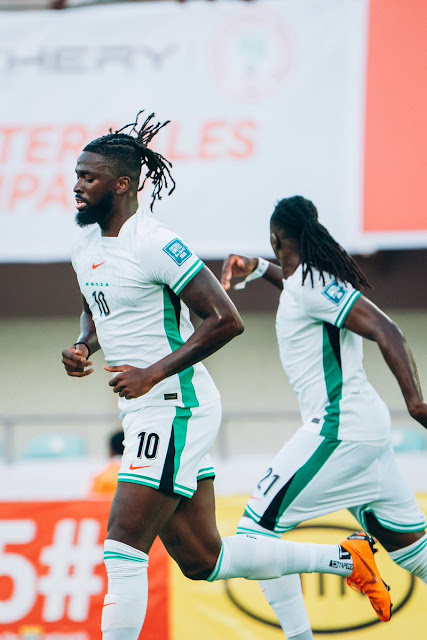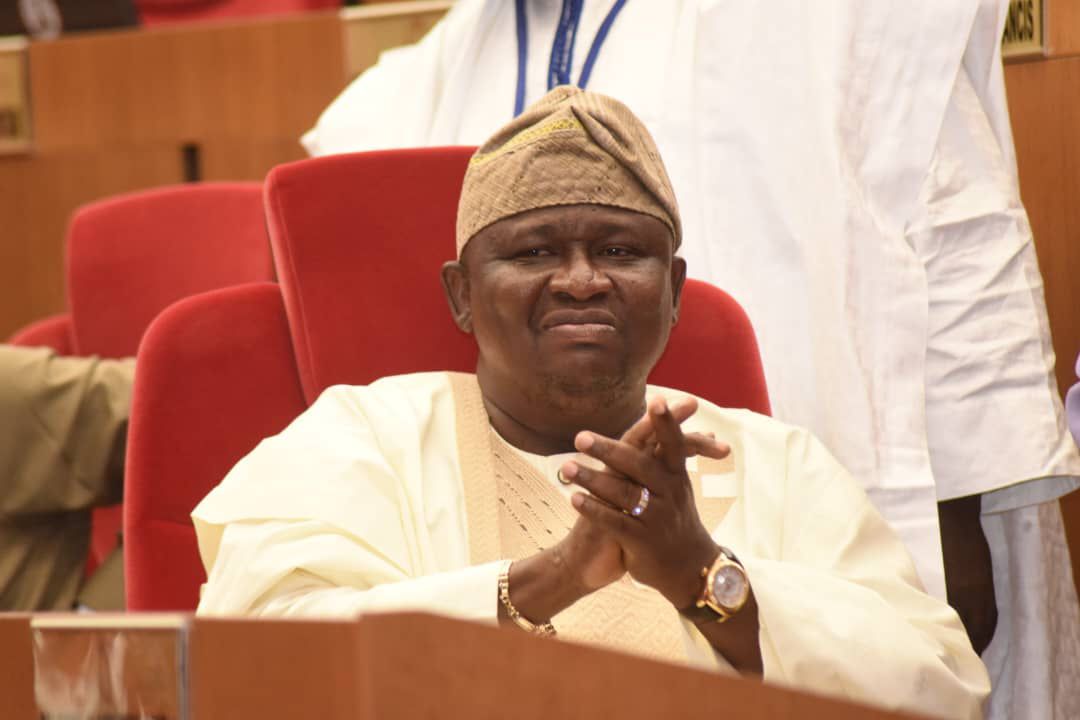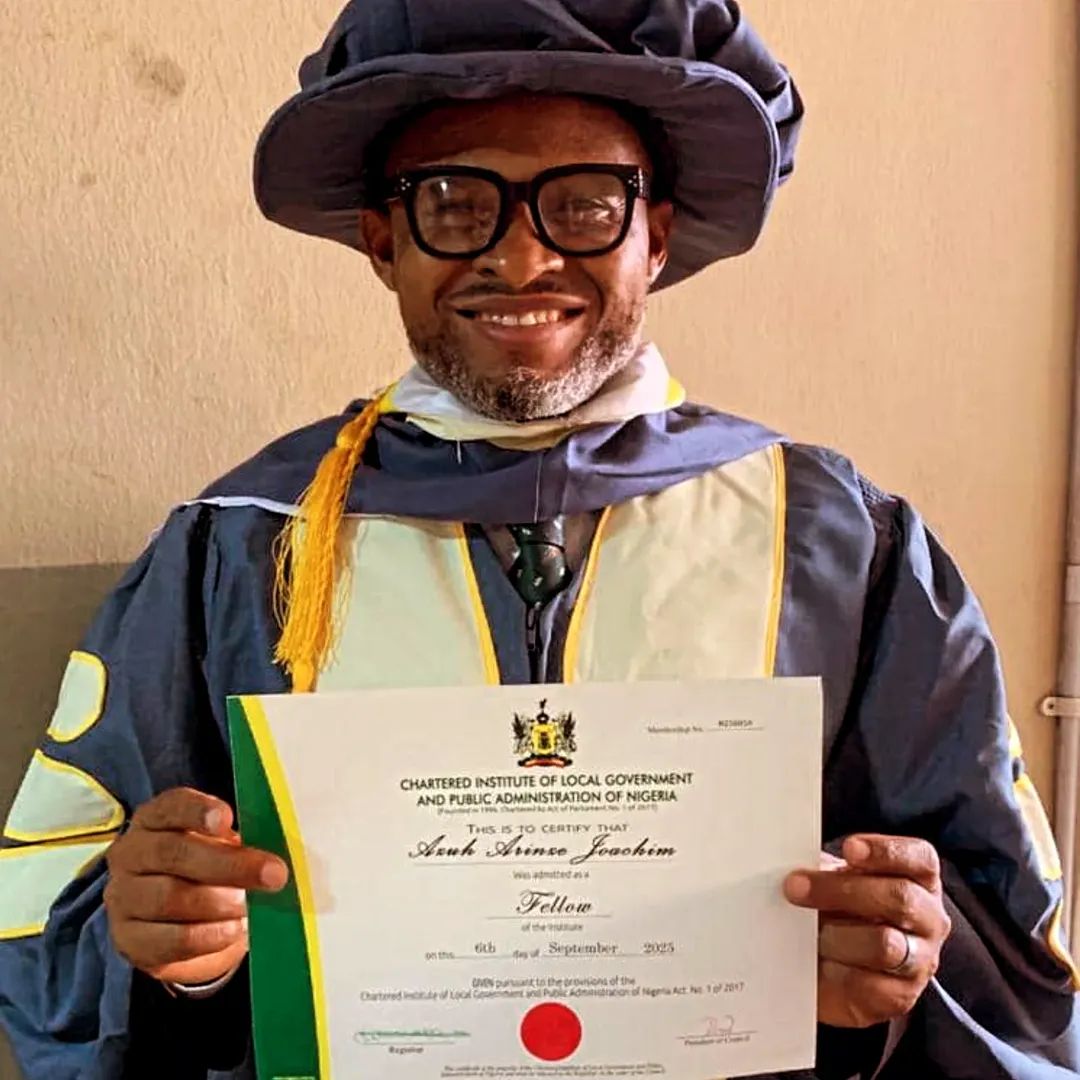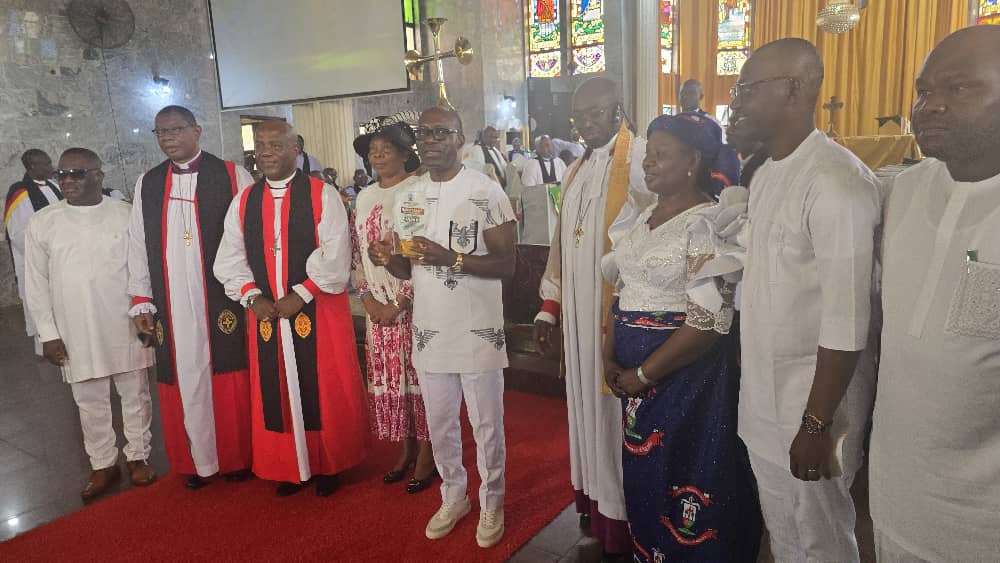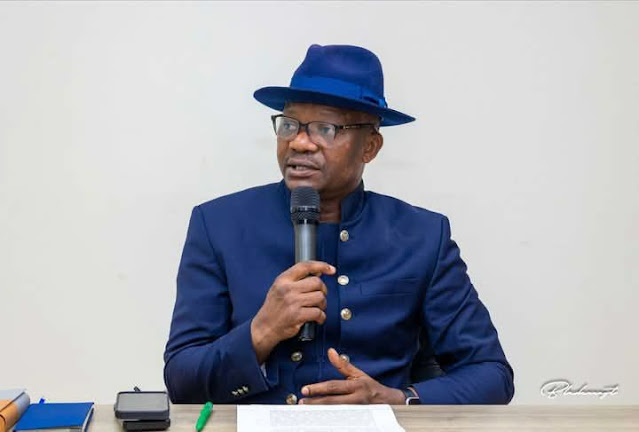In a tense and fiercely contested encounter at the Godswill Akpabio International Stadium in Uyo, Nigeria’s Super Eagles soared to a hard-fought 1-0 victory over Rwanda’s Amavubi in their latest 2026 FIFA World Cup qualifier. The match, played on September 6, 2025, marked a pivotal moment in Nigeria’s quest to secure a spot in the global showpiece, set to be co-hosted by the United States, Canada, and Mexico. The solitary goal, scored by talismanic forward Victor Osimhen, not only clinched three vital points for the Super Eagles but also reignited hope among fans and stakeholders after a faltering start to the qualification campaign.
A Match of High Stakes
The Super Eagles entered the match under immense pressure. Nigeria, a footballing powerhouse in Africa with a rich history of World Cup appearances, had struggled in the early stages of their Group C campaign. Prior to the Rwanda clash, the team had managed only a handful of points from their opening fixtures, leaving them in a precarious position. A victory was non-negotiable if Nigeria was to keep pace with group leaders and maintain their ambition of qualifying for their seventh World Cup.
Rwanda, known as the Amavubi (The Wasps), arrived in Uyo as underdogs but with a reputation for being a resilient and tactically disciplined side. Under the guidance of their German coach, Torsten Spittler, Rwanda had shown they could frustrate stronger opponents with their compact defensive structure and quick counterattacks. The Amavubi’s recent performances in the qualifiers, including draws against more fancied teams, made them a dangerous proposition despite their lower FIFA ranking.
The Godswill Akpabio Stadium, bathed in the vibrant colors of Nigeria’s green and white, was a cauldron of noise as thousands of fans turned out to rally behind their team. The atmosphere was electric, with supporters chanting patriotic songs and waving flags, hopeful that their beloved Super Eagles would deliver a performance worthy of their storied legacy.
The Match: A Tale of Persistence and Precision
From the opening whistle, Nigeria asserted their dominance, controlling possession and dictating the tempo of the game. Interim coach Augustine Eguavoen, who had taken charge of the team following a turbulent period, opted for an attacking lineup featuring the likes of Victor Osimhen, Samuel Chukwueze, and Ademola Lookman. The strategy was clear: overwhelm Rwanda’s defense with pace, flair, and relentless pressure.
In the first 10 minutes, Nigeria created several half-chances, with Chukwueze’s mazy runs down the right flank causing problems for Rwanda’s left-back. However, the Amavubi’s defense, marshaled by their captain and center-back Thierry Manzi, held firm, thwarting Nigeria’s early attempts to break the deadlock. Rwanda’s goalkeeper, Fiacre Ntwari, was also in inspired form, pulling off a string of saves to keep the scoreline level.
As the first half progressed, Nigeria’s frustration began to show. Despite their dominance in possession, the Super Eagles struggled to convert their opportunities into clear-cut chances. Osimhen, playing as the focal point of the attack, was closely marked by Rwanda’s defenders, who doubled up on the Napoli striker to limit his influence. Meanwhile, Rwanda looked dangerous on the break, with their speedy wingers, Innocent Nshuti and Gilbert Mugisha, testing Nigeria’s backline with quick transitions.
The turning point came in the 37th minute when Nigeria’s persistence finally paid off. A well-orchestrated move involving Wilfred Ndidi and Ademola Lookman carved open Rwanda’s defense. Ndidi, operating in his customary deep-lying midfield role, played a precise through ball to Lookman, who darted into the penalty area. The Atalanta winger, known for his composure in tight spaces, squared the ball to an unmarked Victor Osimhen, who made no mistake, calmly slotting the ball past Ntwari to send the stadium into raptures.
The goal was a testament to Nigeria’s attacking quality and Osimhen’s predatory instincts. The 26-year-old forward, who has been a revelation in European football, celebrated with his trademark mask gesture, igniting the crowd and boosting the team’s morale. The 1-0 lead gave Nigeria a crucial advantage, but the job was far from done, as Rwanda had shown they were capable of mounting a comeback.
Second Half: Rwanda’s Resilience and Nigeria’s Resolve
The second half saw Rwanda adopt a more adventurous approach as they sought an equalizer. Coach Spittler made tactical adjustments, pushing more players forward and increasing the intensity of their pressing. The Amavubi’s high press disrupted Nigeria’s rhythm, forcing errors in midfield and creating opportunities for Rwanda to exploit.
One such moment came in the 55th minute when Rwanda’s midfielder Djihad Bizimana unleashed a powerful long-range shot that forced a fingertip save from Nigeria’s goalkeeper, Stanley Nwabali. The resulting corner saw Manzi rise highest, but his header sailed narrowly over the bar, much to the relief of the Nigerian defense.
Eguavoen responded by introducing fresh legs, bringing on Kelechi Iheanacho and Taiwo Awoniyi to bolster the attack. The substitutions injected new energy into Nigeria’s play, with Iheanacho’s creativity and Awoniyi’s physicality causing problems for Rwanda’s tiring defense. However, Nigeria’s inability to convert their chances into a second goal kept the match on a knife-edge.
As the clock ticked down, Rwanda threw everything into their search for an equalizer. A late free-kick in a dangerous position raised the tension in the stadium, but Nwabali was equal to the task, confidently claiming the ball under pressure. Nigeria’s defense, led by the experienced William Troost-Ekong, stood firm in the closing stages, repelling Rwanda’s attacks and preserving the clean sheet.
When the final whistle blew, the stadium erupted in celebration. The 1-0 victory was not the most convincing performance from the Super Eagles, but it was a vital result that kept their World Cup dreams alive. For Rwanda, the defeat was a bitter pill to swallow, but their spirited performance earned them plaudits for their resilience and tactical discipline.
Tactical Analysis: Nigeria’s Strengths and Weaknesses
From a tactical perspective, Nigeria’s victory highlighted both their strengths and areas for improvement. The Super Eagles’ ability to dominate possession and create scoring opportunities showcased their technical quality and attacking depth. The interplay between Ndidi, Lookman, and Osimhen for the goal was a prime example of the fluid, attacking football that has become a hallmark of Nigeria’s play in recent years.
However, the match also exposed some vulnerabilities. Nigeria’s wastefulness in front of goal was a recurring theme, with several promising moves breaking down due to poor decision-making in the final third. Additionally, the team’s midfield struggled at times to maintain control against Rwanda’s high press, suggesting a need for greater composure and tactical awareness in tight situations.
Rwanda, on the other hand, demonstrated why they have become a difficult team to break down. Their compact defensive shape and disciplined approach frustrated Nigeria for large periods of the game. However, their lack of cutting edge in attack limited their ability to capitalize on the few chances they created.
Victor Osimhen: The Hero of the Hour
Victor Osimhen’s goal was the defining moment of the match, and his performance underscored his importance to the Nigerian national team. The Napoli striker, who has been in scintillating form in Serie A, showed why he is regarded as one of Africa’s finest talents. His movement, physicality, and clinical finishing were on full display, and his goal was a reminder of his ability to deliver in crucial moments.
Osimhen’s rise to prominence has been nothing short of remarkable. From his humble beginnings in Lagos to becoming a global star, the 26-year-old has carried the hopes of a nation on his shoulders. His performance against Rwanda was a microcosm of his journey—resilient, determined, and decisive.
Broader Context: Nigeria’s World Cup Qualification Campaign
The victory over Rwanda was a much-needed boost for Nigeria’s 2026 World Cup qualification campaign. The Super Eagles’ faltering start had raised concerns among fans and pundits, with draws and losses in previous matches putting their qualification hopes in jeopardy. The win moved Nigeria closer to the top of Group C, though they still face a challenging road ahead with matches against other strong teams in the group.
The 2026 World Cup, set to be the first to feature 48 teams, offers African nations an increased number of qualification slots. CAF has been allocated nine automatic spots, with an additional team able to qualify through a playoff. For Nigeria, a country with a proud footballing tradition, failing to qualify would be unthinkable. The Super Eagles have appeared at six World Cups (1994, 1998, 2002, 2010, 2014, and 2018), with their best performance coming in 1994 when they reached the round of 16.
However, the road to qualification is fraught with challenges. Group C is highly competitive, with teams like South Africa and Benin Republic posing significant threats. Nigeria’s next matches will be crucial, and Eguavoen will need to address the team’s inconsistencies to ensure they secure a ticket to North America.
Augustine Eguavoen’s Interim Tenure
The match against Rwanda was also a test for interim coach Augustine Eguavoen, who has taken on the daunting task of steering the Super Eagles through a turbulent period. Eguavoen, a former Nigeria international and a respected figure in Nigerian football, has been tasked with stabilizing the team following the departure of previous coaches. His tactical acumen and ability to motivate the players were evident in the victory, but the pressure to deliver consistent results remains immense.
Eguavoen’s decision to field an attacking lineup paid dividends, but questions linger about the long-term direction of the team. With the Nigeria Football Federation (NFF) reportedly searching for a permanent coach, Eguavoen’s tenure may be short-lived. Nevertheless, his impact in galvanizing the squad and securing a crucial win cannot be understated.
The Fans: Nigeria’s 12th Man
The role of Nigeria’s passionate fans cannot be overlooked in the victory. The Godswill Akpabio Stadium was a sea of green and white, with supporters creating an intimidating atmosphere for the visitors. From the pre-match renditions of the national anthem to the post-match celebrations, the fans played their part in spurring the Super Eagles to victory.
Football is more than just a sport in Nigeria—it is a unifying force that transcends ethnic, religious, and social divides. The victory over Rwanda was a moment of collective joy for a nation that has faced its share of challenges in recent years. For 90 minutes, the stadium was a microcosm of Nigeria’s resilience and spirit, with fans and players united in pursuit of a common goal.
Rwanda’s Perspective: A Valiant Effort
For Rwanda, the defeat was a setback, but their performance was far from embarrassing. The Amavubi have made significant strides in recent years, emerging as a competitive force in African football. Their disciplined display in Uyo showed that they are capable of holding their own against the continent’s heavyweights.
Coach Torsten Spittler will take heart from his team’s resilience and organization, even if their attacking output was limited. With several matches remaining in the qualification campaign, Rwanda still has a chance to make an impact in Group C, particularly in home fixtures where they have historically been difficult to beat.
Implications for the 2026 World Cup
The victory over Rwanda has far-reaching implications for Nigeria’s World Cup aspirations. The three points earned in Uyo have bolstered the team’s position in Group C and provided a much-needed confidence boost. However, the Super Eagles cannot afford to rest on their laurels. The qualification campaign is a marathon, not a sprint, and consistency will be key to securing a spot in the 2026 World Cup.
For Nigerian fans, the win was a reminder of the team’s potential when firing on all cylinders. The likes of Osimhen, Lookman, and Ndidi represent a golden generation of talent, and with the right guidance, Nigeria could make a significant impact on the global stage.
Looking Ahead
As Nigeria prepares for their next qualifiers, the focus will be on building on the momentum from the Rwanda victory. Eguavoen and his coaching staff will need to address the team’s profligacy in front of goal and shore up their midfield to avoid being exposed by stronger opponents. The return of key players from injury and the integration of emerging talents could also play a crucial role in Nigeria’s campaign.
For now, though, the Super Eagles and their fans can savor a hard-fought victory that has kept their World Cup dreams alive. The road to 2026 is long and arduous, but with players like Victor Osimhen leading the charge, Nigeria has every reason to believe they can soar to new heights.


